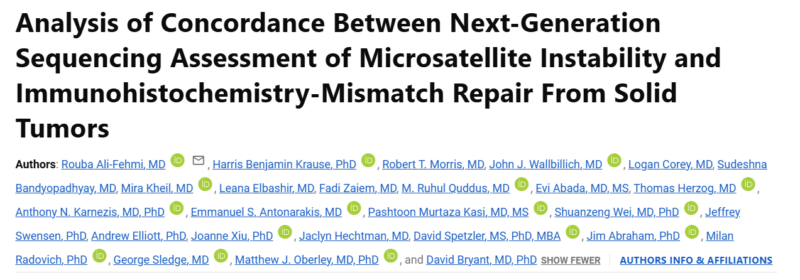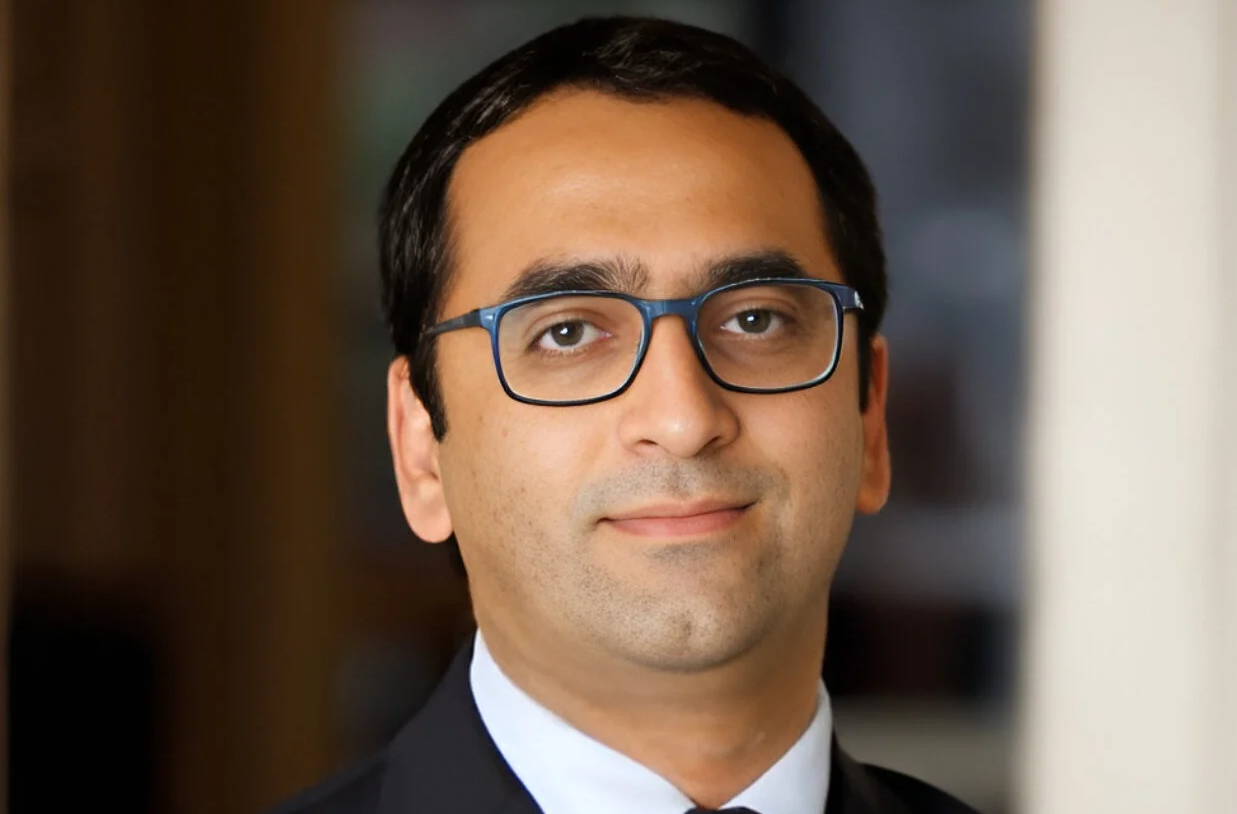Pashtoon Kasi, Medical Director of GI Medical Oncology at City of Hope, shared a post by Matthew Oberley, on LinkedIn, adding:
“If there is one biomarker that you cannot miss, it’s microsatellite instability (MSI-High) or mismatch repair deficiency (dMMR). There’s a reason why this was the first agnostic approval. This is the 1st situation where I started hearing the word CURE with immunotherapy even in patients with stage IV metastatic cancer.
Testing, however, is more complex in the real world. Some folks swear by the fact that mismatch repair deficiency by immunohistochemistry (IHC) is 100% accurate and is the only way to go. That’s not true. There’s no test that’s perfect. None of the others are.
But the goal of ORTHOGONAL testing is based in the philosophy that “measurements that use different physical principles to measure the same property of the same sample with the goal of minimizing method-specific biases and interferences.”
These are not meant to replace IHC, but what IHC misses, MSI by PCR/NGS or TMB may catch. I’ll also add blood/plasma-MSI and blood/plasma-bTMB on ctDNA or Liquid Biopsies as well. Often there’s limited tissue or not readily available. Even if it’s a few percent of cases, every one of these cases is a potential cure.
With comprehensive panel based testing becoming the norm, we are finding more of these discordant cases that otherwise would have been missed.
This also has implications for the family/siblings if this is germline.
Consider orthogonal testing to not miss these actionable markers.
IHC + DNA + RNA + Liquid.”
Quoting Matthew Oberley‘s post:
“We had the opportunity to look at concordance between MSI by NGS and MMR by IHC in almost 200,000 patients across the spectrum of solid tumors. Primary conclusion: measurement of MSI status by NGS is non-inferior to IHC when there is at least 20% tumor cells present in the tissue examined.
Caris recently got FDA approval for measuring MSI by NGS as a tumor-agnostic CDx for solid tumors on our WES/WTS tissue test, MI Cancer Seek.”
Authors: Rouba Ali-Fehmi, Harris Benjamin Krause, Robert T. Morris, John J. Wallbillich, Logan Corey, Sudeshna Bandyopadhyay, Mira Kheil, Leana Elbashir, Fadi Zaiem, M. Ruhul Quddus, Evi Abada, Thomas Herzog, Anthony N. Karnezis, Emmanuel S. Antonarakis, Pashtoon Murtaza Kasi, Shuanzeng Wei, Jeffrey Swensen, Andrew Elliott, Joanne Xiu, Jaclyn Hechtman, David Spetzler, Jim Abraham, Milan Radovich, George Sledge, Matthew J. Oberley, and David Bryant

More posts featuring Pashtoon Kasi.
Dr. Pashtoon Kasi is the Medical Director of GI Medical Oncology at City of Hope, Orange County. Previously, Dr. Kasi served as an Associate Professor of Medicine in the Division of Hematology and Oncology at the University of Iowa, following positions as an Assistant Professor of Medicine and Oncology at both the University of Iowa and Mayo Clinic.
He also served as the Director of Colon Cancer Research and Director of Precision Medicine Research for Liquid Biopsies at Weill Cornell Medicine.His research primarily focuses on “liquid biopsies,” particularly circulating tumor DNA (ctDNA) and circulating tumor cells (CTCs).
Dr. Kasi is also recognized as an author and editor of several significant books, including “Research: What, Why, and How: A Treatise from Researchers to Researchers” and “Impact of Circulating Tumor DNA (ctDNA) in Patients with Gastrointestinal Malignancies.” His scholarly contributions extend to over 100 publications in esteemed peer-reviewed journals. He also received the Yvonne Award 2024 by OncoDaily in the “challenging the status quo” category.


